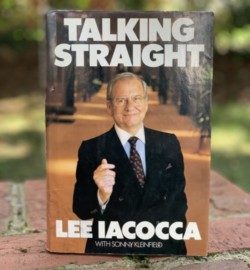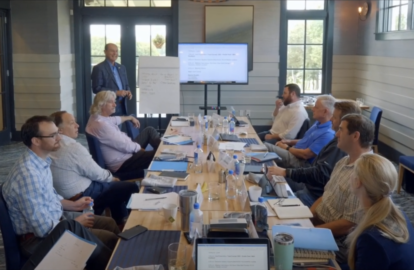Picture the owner of an exciting startup. What does he or she look like? Fresh-faced with jeans and a hoodie? We’ve embraced the narrative that entrepreneurship is fast-paced, casual, savvy… and young. But as David Nilssen writes in Entrepreneur, “Contrary to popular belief, entrepreneurship isn’t just for 20-year-old kids writing code in their college-dorm rooms.”
Increasingly, more seasoned (i.e. older) folks are starting their own businesses, leveraging decades of work experience so they can become their own bosses. Dale*, a 50-year old veteran executive, found himself starting over as an entrepreneur. The problem was he had no idea how to go about it.
Breakfast: The Most Important Meal of Your Career
Dale was no stranger to the corporate world. In fact, he had an insider’s view like few others. Working for multi-billion dollar firms, he handled high-level accounts, made high-stakes decisions, and worked with companies whose reach extended around the world. While Dale could lead a multi-billion dollar company, he didn’t know how to start one from scratch.
Vistage, knowing of Dale’s impressive background, repeatedly invited him to attend breakfasts that introduced executives and leaders to the peer advisory group – and to each other. He had no reason to attend. He was a big shot VP. Until he wasn’t.
When Dale left his previous multi-billion company to start his own business, he was also going through a ivorce and trying to see his children as much as possible. There was a good helping of change on his plate, and finally, he thought, “Why not?” He accepted an invitation to breakfast. Dale didn’t start his business that day – but he did start down a path that would enable him to reach his goals.
Peer Support – and A Key Question
At the breakfast, a Vistage member asked Dale about his plans to start a company. “That’s great,” the member said. “Who’s going to be your first hire?”
That’s when Dale froze. He didn’t have a good answer. Though he’d hired and fired thousands of people, he had never committed to that first hire, that first employee. That one question triggered something in Dale. He looked around the room, seeing a lot of early-stage companies. A lot of founders and children of founders. These are the people who could help him seize the opportunity to build a great company.
An Agenda with No Agenda
Every Vistage meeting has a clear agenda; structure and process is at the core of the peer advisory’s efficacy. But members do not bring their own agendas to meetings. They are open and candid, and their only objective is to help one another grow their companies, and grow as people.
Dale saw that. He felt supported in talking about the real issues – not just the “head” or intellectual topics, but the heart and gut issues. Not only did he receive practical, and actionable, guidance on starting his business, he learned how to balance that with his personal life and development.
It is impossible to overstate the importance of peer groups – or their ability to transform leaders and their companies. Vistage members, for instance, grow their businesses at three times the rate of average US companies . The proof is in the numbers: peer support empowers leaders to do their best work, and it holds them accountable for delivering just that.
And Dale did. He started his business and grew it from the ground to nearly $200 million in just a few years. Once he overcame that initial struggle of how to start, he knew how to guide his company to exceptional results. And it all started with breakfast.
The Power of Peers
Leon Shapiro and Leo Bottary write in The Power of Peers, that “CEOs [and executives] are faced with a singular reality: there are very few people they can rely upon for impartial advice. It’s just not that easy to find individuals who know precisely what it’s like to sit in [their] chair.”
The truth is, it is easy to find these people. You just need to know where to look: Vistage. In his peer group, Dale found people who’ve sat in his chair, and people in whose chair he wanted to sit. Both helped him succeed when he was starting over as an entrepreneur. And he didn’t even have to wear a hoodie.
*This name has been changed for confidentiality.


